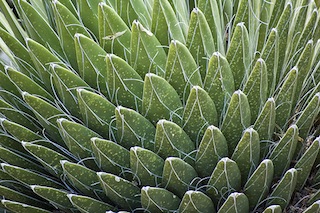 GUARDIAN– The desert plants used to distil tequila could cut emissions
from transport by providing an important new biofuel crop, according to
new research.
GUARDIAN– The desert plants used to distil tequila could cut emissions
from transport by providing an important new biofuel crop, according to
new research.
“Agave has a huge advantage, as it can grow in marginal or desert land, not on arable land,” and therefore would not displace food crops, said Oliver Inderwildi, at the University of Oxford.
Much of the ethanol used as a substitute for petrol is currently produced from corn, especially in the US, and has been criticised for driving up grain prices to record levels. A recent inquiry found that laws mandating the addition of biofuels to petrol and diesel had backfired badly and were unethical because biofuel production often violated human rights and damaged the environment.
But the new study found that agave-derived ethanol could produce good yields on hot, dry land and with relatively little environmental impact. The agave plant, large rosettes of fleshy leaves, produces high levels of sugar and the scientists modeled a hypothetical facility in the tequila state of Jalisco in Mexico which converts the sugars to alcohol for use as a fuel.
Inderwildi said the research, published in the journal Energy and Environmental Science, is the first comprehensive life-cycle analysis of the energy and greenhouse gas balance for agave-derived ethanol. The team found the production of agave-ethanol led to the net emission of 35g of carbon dioxide for each megajoule of energy, far lower than the 85g/MJ estimated for corn ethanol. In comparison, burning petrol emits about 100g/MJ and some estimates of corn ethanol suggest it is worse than petrol.
Read more about Tequila Gives New Biofuel Crops A Shot.
© 2011 The Guardian
Photo by flickr user kretyen










